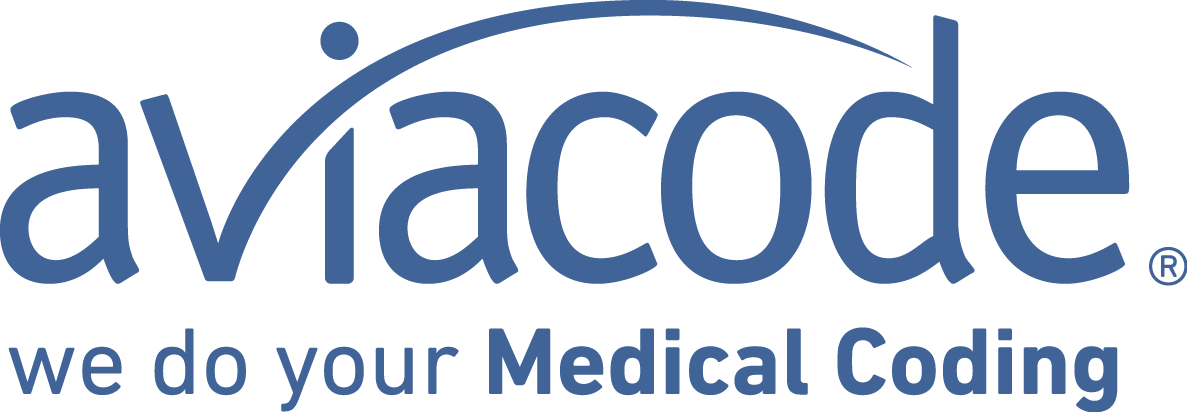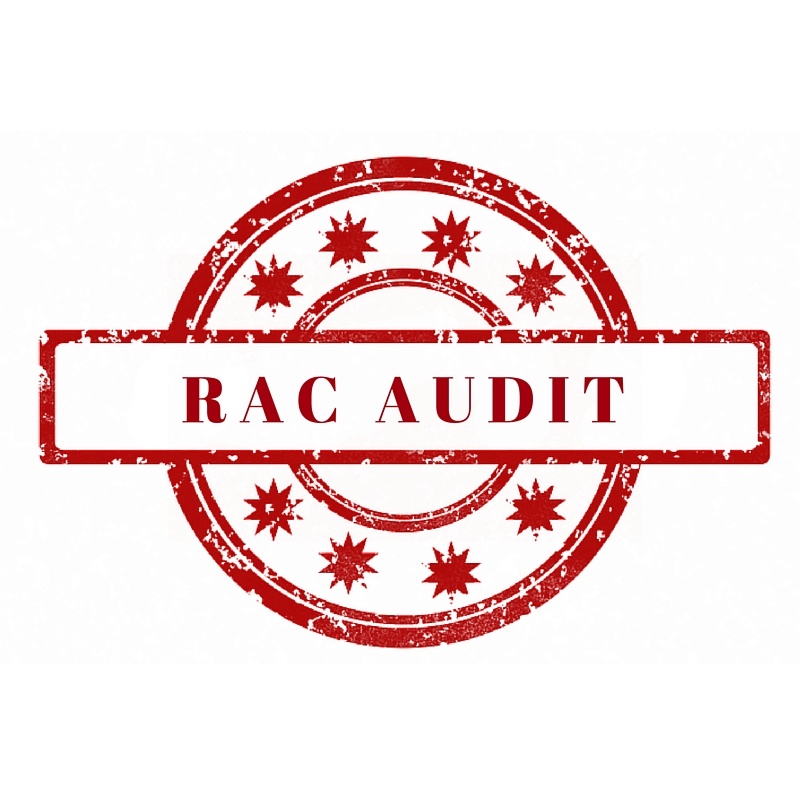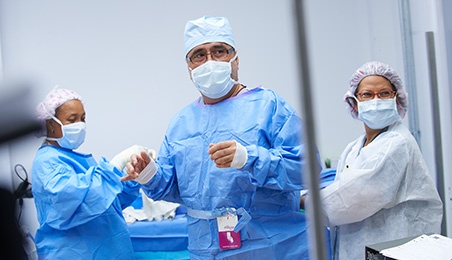Who Participates in Medical Coding?
Coding is a team effort, with the certified medical coder leading the way.
Front Desk/Receptionist
Medical coding starts with a patient making an appointment to see their physician. The receptionist makes the appointment – without the appointment the coding process would fail to start.
Physician or Healthcare Provider
Next, is the physician, or healthcare provider. They diagnose the patient based on their symptoms (complaints), and in some cases blood tests, x-rays, or any number of other test(s).
Certified Medical Coder
Then the medical record makes its way to the certified medical coder. The coder translates the written clinical documents into codes. This coding process allows the physician or healthcare provider to receive payment for the services they have provided to the patient.
Ben Castleberry

Recent Posts
Topics: ICD-10, Medical Coding, HIM
The medical coding system originated in England during the 17th century. Statistical data was collected from a system called the London Bills of Mortality, and the data was organized into numerical codes. The codes were then used to estimate the most recurrent causes of death.
Fast-forward a few centuries… The statistical examination of the Mortality Rate (causes of death) was then organized into the “International List of Causes of Death.” Over the years, the World Health Organization (WHO) used the list increasingly to help in tracking the mortality rates and the international health developments.
The list was later developed into the International Classi fication of Diseases, which is now in it’s 10th edition, also known as the ICD-10-CM/PCS.
In 1977, the global medical community accepted the ICD system, which compelled the National Centers for Health Statistics (NCHS) to expand their reach to contain clinical information. In other words, the ICD system was extended to include cause of death and clinical diagnoses, such as injuries and illnesses.
Topics: ICD-10, Medical Coding, ICD-9
How Your Ambulatory Surgical Center Can Avoid a RAC Audit
Too often Ambulatory Surgical Centers are ill prepared for an RAC audit. It is in the ASC’s best interest to have an ongoing process that prepares your center for possible audits. In order to successfully avoid an RAC audit your ASC needs to have detailed and accurate documentation. It is imperative that your center is accurately translating your medical records into standard medical coding. There are 3 steps your ASC should take to achieve accurate documentation and medical coding.
- Employ Medical Coding Professionals- The work of your medical coders will determine the likelihood of an RAC audit. Whether your ASC is hiring your own medical coders or if you are using an outside source, make sure they are extremely well trained. When an ASC is being audited there are 4 common problems centers have that result in poor findings:
- Defectively trained staff
- Staff lacks the time to medical code thoroughly
- Medical coders misinterpret rules
- ASC’s have frequent rotations of new staff
To avoid these common problems it might be in your ASC’s best interest to higher an outside source for medical coding.
Topics: Medical Coding, HIM, outsource, Surgical Center
Ambulatory Surgical Center Medical Coding Differentiators
Medical coding for Ambulatory Surgical Centers is a field that varies greatly from standard medical coding for hospitals and surgeons. ASC’s have a different set of regulations they need to follow. Some ASC’s may be inaccurately using the same codes that surgeon’s use, which may attract auditors and decrease reimbursement. When it comes to medical coding, ASC’s walk a fine line. Some procedures require ASC’s to follow the rules for physicians, while others require them to follow hospital rules, and some medical codes are unique to ASC’s.
Because ASC medical coding is more complex than typical medical coding, well-trained ASC medical coders are hard to come by. Few ASC medical coders are certified, and even less have previous experience. Outsourcing medical coding is typically the most effective method ASC’s use. At Aviacode we have highly trained ASC certified medical coders. We also have a team of Quality Assurance Coders to make sure everything has been coded accurately.
Coding For Medicare
While an ASC is typically labeled as a facility service, Medicare requires ASC’s to send their bills to the professional fee payers while using a facility fee claim form.
Topics: Medical Coding, HIM, outsource, Surgical Center
3 ways to make your Ambulatory Surgical Center Profitable
In today’s economy, creating a profitable business is not always an easy task. Ambulatory Surgical Centers are not impervious to the challenges that many businesses face. In order for ASC’s to succeed they need to be continually working on improving their business. There are three important founding principles that will help create a profitable ASC.
- Financial Stability: Maintaining financial stability is easier said than done; it’s never something that can be permanently checked off of your list. It contains many processes that require active involvement. Start by creating a detailed budget for your ASC. Review your budget frequently and cut costs whenever possible. Do some research to discover the best prices for the supplies needed, and take advantage of sales your supply companies’ offer.
An important aspect of maintaining financial stability is reviewing where your revenue is coming from. Most of the income Ambulatory Surgical Centers produce is from insurance companies; because of this it is imperative that your company maximizes the benefits of medical coding. Expert medical coding is a requirement for a successful ASC. It can be dangerous for ASC’s to hire their own medical coders, because surgery centers have a distinct set of codes that vary from that of a typical hospital environment. Medical coders without this important knowledge will decrease reimbursement from insurance companies, increase claim denials, and may even send auditors knocking on your door to investigate your surgery center. Outsourcing medical coding removes these dangers from your ASC, and would likely improve insurance reimbursement rates. Outsourcing your medical coding would increase financial stability for your Ambulatory Surgical Center by decreasing the instability employees bring to the company, and it would save your company from having to payout multiple salaries/cost of benefits.
Topics: Medical Coding, HIM, outsource, Surgical Center
4 Secrets ASC’s Need to Keep Medical Coding Consistent
Many Ambulatory Surgical Centers have clinics located in rural and metropolitan areas. While this allows their patients easier access to their ASC it, may create some medical coding difficulties for the centers themselves.
It is extremely important to maintain medical coding consistency within your umbrella of surgical centers. Inconsistent medical coding typically indicates that some medical coders are billing out incorrect medical codes, or they are under coding, which prevents ASC’s from being reimbursed the full amount warranted. If these inconsistencies persist, auditors may find it necessary to investigate the facilities and increase claim denial.
Fortunately we have discovered four important secrets to maintain medical coding consistencies:
- Consistent Trainings- Because most Ambulatory Surgical Centers have clinics in both rural and metropolitan areas it is extremely important that your medical coders are receiving adequate training. Many medical coders that are hired on have different backgrounds and if you strictly rely on your medical coders’ previous experience, inconsistencies will persist. Create a training manual for all of your clinics to help your medical coders know how your ASC practices medical coding.
To keep your medical coders on the same page it would be a good idea to hold frequent meetings. To ensure each clinic is receiving consistent trainings hold these meetings with the entire flock of medical coders your ASC has employed. Each clinic can be tapped into these meetings through a conference call or any other adequate source of technology.
Topics: ProCoder, Medical Coding, HIM, outsource
Do Differentiators Exist in Medical Coding Services?
HIM Directors, VP of Rev Cycle, Coding Managers, etc. Have become inundated with medical coding companies claiming to have the secret sauce that will rid them of all their woes. Whether it be reducing backlogs, helping with denials, decreasing AR days, any medical coding company you speak with can make it all happen. The question becomes, how do you do it? What makes you different than every other company knocking on my door claiming they have 95% accuracy and 48 hour turnaround time?
There are 3 key differentiators you should look for when evaluating a medical coding partner for your healthcare facility.
1. Coders - How good are they? Are they domestic certified coders with years of experience? Are they off-shore coders? Domestic doesn't always equal better, however, make sure you understand where your coders are, and their level of expertise.
Topics: ProCoder, Medical Coding, HIM, outsource
I recently sat down with my friend Manuel who told me about his life as a medical coder. Manuel is married with two daughters. He spends about half of the year living and working as a medical coder from exotic locations like Belize or the Dominican Republic. His previous life in corporate management would have never allowed him to live such an adventurous life. As we spoke, I asked him how others could enjoy both the financial and independent freedom he was enjoying as a remote medical coder.
Manuel enrolled in some medical coding classes. He became educated, trained, and certified as a medical coder within 9 months. He was offered a job immediately after receiving his certification and began to receive incredible compensation, all while working remote. Here are the 4 steps to becoming a certified remote medical coder.
Step 1 Education- You need to receive your education. The third step in this process involves getting your certification, which requires you to pass a very difficult exam. A good resource to get your education would be here: www.aapc.com that is the American Academy of Professional Coders. You can enroll in their classes anytime and begin your self-paced education online.
Topics: Medical Coding, outsource, careers
It’s Tuesday; Tiffany is the Director of HIM at a chain of surgical centers in the Eastern United States. Tiffany has been working tirelessly to replace one of her In-House medical coders who decided to start working from home for another company. Her search has been in vain as so many coders are choosing to work from home for more dollars than she has budget to offer. One of Tiffany’s fastest and most accurate medical coders walks up to her and tells her she is leaving effective immediately.
Why?
The workload has become overwhelming, and the benefits that once kept her working for Tiffany have been outweighed by the promises of higher wages and more freedom from other companies. Tiffany is now down 2 medical coders with a mounting backlog growing every minute.
Topics: Medical Coding, HIM, outsource
Secrets to Increasing Revenue through Claim Denials
In the world of medical services it is no secret that the revenue cycle can be severely interrupted if not completely stopped when a medical claim filed is denied. This break in the rev cycle has been under much scrutiny and close watch by medical officials and stakeholders, especially since the switch to ICD-10. There was nervousness over how dramatically claim denials would increase after the new codes were implemented – now this anxiety has been exchanged for determination to minimize the impact that denied claims can and will inevitably have on revenue.
One case study that stands out as a self-starter for taking initiative in this area is Orlando Health. With 6 acute Care Hospitals, 15,132 team members and 2,995 beds, Orlando Health was interested in investigating how to reduce their percentage of denied claims and maintain the industry benchmark between 2-4 percent. Their discovery after seeking advice from an outside consulting group left administrators concerned that they were heading for trouble, when told they already ranked above the national average and were losing millions of dollars in revenue every year.
Topics: Medical Coding, Claims Life Cycle, Denial Management












